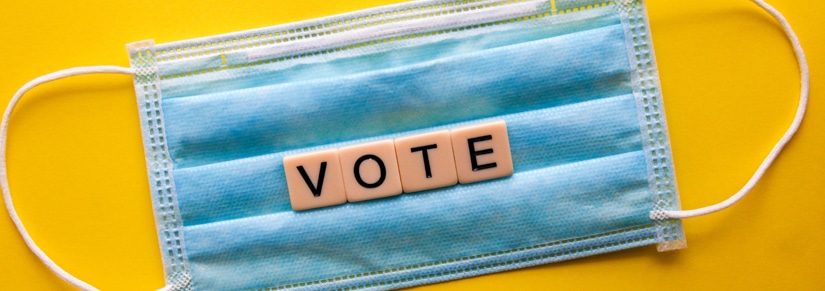Facilitating a Civic Duty: How Two Campuses Prepared for Election Day
This year higher education prepared for yet another hectic event: Election Day. Students at schools across the United States helped organize polling sites, conducted registration drives, conducted awareness events, and provided platforms for election-related discussions. Student unions and centers particularly focused on education, outreach, and conversation.
The Bulletin interviewed two student union directors to learn more about how their unions prepared for Election Day: Ann Comerford, Executive Director of the Student Union at University of Illinois–Springfield, and Terry Weber, Executive Director of the Plaster Student Union at Missouri State University. Both schools provided students with opportunities to learn about the election process and discuss ideas and issues, as well as recognize those students who voted.

How did your student union prepare for election day?
Comerford:
The UIS Student Union was part of a larger conversation to plan programs prior to and after the 2020 election, involving several offices and students: Volunteer Services and Civic Engagement, Student Life, Residential Life, Diversity Center, Veteran Services, Student Government, and student leaders. Faculty were also invited to the conversation.
Weber:
The Plaster Student Union is not a polling place, so traffic within the facility was on par with our normal operations. However, we did support several endeavors leading up to Election Day to encourage people to vote. Beginning in the weeks prior to Election Day, several campus notaries coordinated efforts to notarize ballots and other election materials. The results of these coordinated efforts culminated in more than 1000 notarizations. Priorly, individuals would have to seek out notaries on campus and schedule an appointment. Students were very appreciative of these efforts, knowing that their ballot would be considered in the election results.
Further, staff in the Office of Student Engagement coordinated efforts with other university offices to facilitate six different pre- and post-election programs; some of these have yet to take place. The goal of these programs is to encourage students to voice their opinions in a safe space and to make meaning of the results. Our Student Activities Council also hosted a “Voting is Sweet” table, where more than 300 students interacted with our programming board. The goal was to reward students with a cookie for exercising their right to vote.
What steps did your student union take to handle politically charged or divisive student commentary or action?
Comerford:
Faculty from the College of Public Affairs and Administration hosted an online program on “What you Need to Know” to help the community understand the election process, including but not limited to how voting and the Electoral College work. Students from the College Democrats and Republicans hosted two Town Halls, one prior to the election and one after. The Town Halls were in-person and streamed. Representatives from the two groups participated in moderated discussions on national, state, and local issues.
UIS hosts a Coalition Builders chapter (NCBI), and this organization hosted an online education workshop on how to have difficult conversations with individuals you may not agree with during this election process. The Diversity Center held a “vibe check-in” listening table on the Friday of election week. The vibe check-ins began early in the pandemic and touched on several issues of social concerns. They give people the chance to step away from titles and roles within our community to talk about feelings and connect with one another.
Weber:
Our Division of Student Affairs had discussions with department heads to clarify policies in place at the University related to expressive activity and expectations for staff related to supporting political causes. The Office of Student Engagement—which reports through the Student Union—facilitated programs with other university partners.
The Student Union also held a staff meeting to discuss expectations for supporting political causes. We also discussed ways to support the various student organizations that are directly tied to our operations. To date, we have not encountered any election-related issues.
What did your student union learn from this year? Will you do anything differently for the next election cycle?
Comerford:
The Student Union is a place of information and community, and I think the Union stayed focused on this role for the UIS community. The day after the election, the Union hosted a “Voices of Democracy” program with the SGA and Volunteer Services and Civic Engagement office. This program consisted simply of a microphone and speakers out on the patio, allowing students, faculty, and staff to share their thoughts and feelings on the election. The opportunity to come together and talk about the election in such an open space was a great testament to the UIS campus community; donuts and hot cocoa helped too.
Hosting these types of programs for any and all elections and significant occurrences in our society and communities will now be a hallmark event from the UIS Student Union. This is thanks to the students of UIS who made it happen.
Weber:
Upon reflection, we did not start planning for our response early enough. This was largely due to the ongoing COVID-19 pandemic. We will start planning for mid-term elections in 2022 in a more timely fashion.

